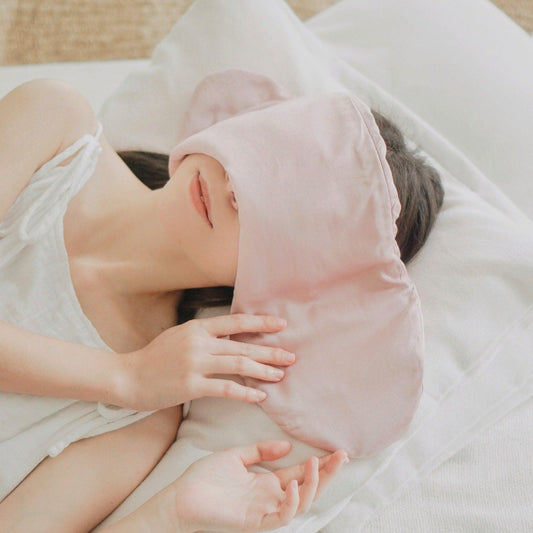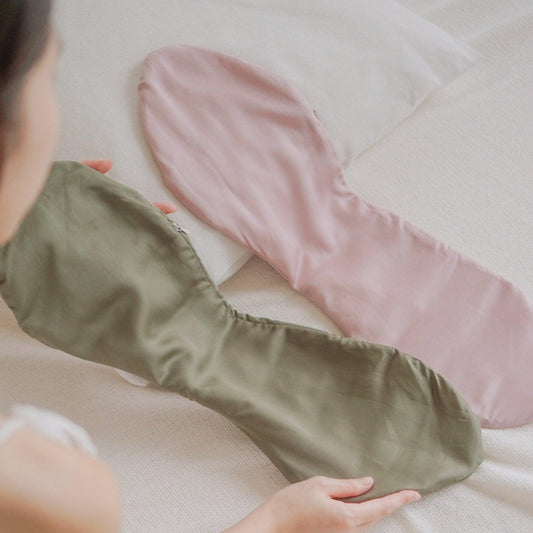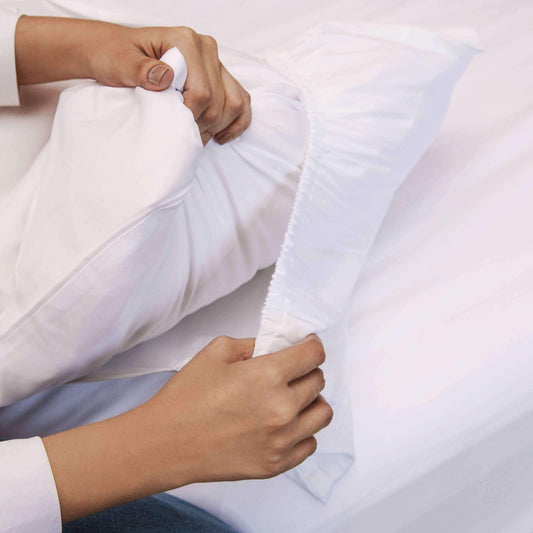
What is clean sleeping?
Share
Sleep is vital for physical and mental wellbeing, and therefore should be a priority for all of us. The average person spends 26 years of their life sleeping, so it makes sense to make the most of this time with good habits and high-quality bedding. Interestingly, the average person spends 7 years in bed trying to get to sleep! Clean sleeping can help minimise this ‘wasted' time.
The clean sleeping movement has recently grown in popularity as celebrities such as Gwyneth Paltrow have advocated the practice and declared clean sleeping just as important as clean eating
What are the benefits of clean sleeping?
Clean sleeping leads to a better quality of sleep and long hours of sleep, ensuring you feel better rested. Sleep is vital for our health as this is when our body renews and repairs itself. High sleep quality has a whole host of health benefits such as:
- A healthy appetite
- Increased energy levels
- A positive mood
- Weight management
A bad nights sleep can have a huge impact on the next day. Poor sleep or not enough sleep can lead to:
- Irritable moods
- Dull skin
- Under-eye bags
- Weight gain due to increased appetite
- Lowered immune system
- Lower memory function
- Reduced motor skills
- Lack of concentration
Low quality or duration of sleep can lead to the release of the stress hormone, cortisol. High levels of cortisol over time can lead to high blood pressure and weight gain.
Long term, lack of sleep can lead to diabetes, heart disease and even some cancers.
How to practice clean sleeping
Clean sleeping is a term open to interpretation. What works well for one person, may not for another. It is recommended you experiment with various habits, and find which produce good results for you.
Here are some for you to try:
- Stay away from screens for at least an hour before bedtime. This is a bad habit I’m sure many of us can relate to. The popularity and advance in technology over the past few years has without a doubt had a negative impact on our sleep. The blue light from devices suppresses melatonin (the sleep hormone) production, and over-stimulates the mind, making it more difficult to relax. If possible, don’t have a phone or computer in your bedroom. If you are tempted, turn the wi-fi off when you go to bed, or place your phone on airplane mode.
- Make sure your bedroom is completely pitch black. Darkness stimulates the production of the sleep hormone melatonin which helps induce sleep. Invest in a sleep mask or black-out blinds.
- Ensure you get enough sleep. For most people 7-8 hours is required to feel and perform at your best.
- Be cautious regarding your food and drink choices. Avoid caffeine, sugar and alcohol in the evenings. Caffeine is a huge culprit when it comes to restless nights. Try cutting out coffee and chocolate after 2pm
- Cut out napping. Napping can disturb the body’s natural sleep cycle, leaving you feeling groggy and not tired enough when it comes to bedtime
- Eat a light dinner. A bloated, uncomfortable stomach can make it more difficult to get to sleep. Try to eat dinner as early as possible, and at least 2 hours before bedtime.
- Create a routine. If you do the same activities (at the same time and in the same order) your brain will naturally begin to associate them with rest, making it easier to fall asleep. Go to sleep at the exact time each day. 10pm-11pm is the optimal time for most adults, but find what works for you and stick to it (even on weekends!). This consistency will help you get to sleep, and make it easier to wake up on a morning.
- Make bedtime a treat. Create positive association with going to bed by treating yourself at the end of the day. Whether it’s a bath, some time with a good book or even a massage- make bedtime something you look forward to.
- Keep cool. A warm bedroom can be disruptive to our sleep cycle as the body will try and cool itself down to sleep. Our natural circadian rhythm lowers the body’s temperature in the couple of hours before bedtime.
- Invest in your bedding. We recommend spending as much as you can afford on your bedding. Given that sleep is essential to health and wellbeing, and we spend a large portion of our lives in bed- this is a worthy investment and not an area to compromise on. High-quality bedding will last years, so you may end up spending less in the long run.
- Relax before bed. Add a relaxing activity to your bedtime routine. Yoga and/or meditation is a popular choice. Many people report that a warm bath helps them get to sleep. Add essential oils (particularly lavender) for even more benefits.
- Keep your sheets clean. Everyone loves getting into bed with fresh, great smelling sheets. This will create a further positive association with going to sleep. Try to wash your bed sheets at least once a week. Make sure you have at least 2 sets so you have a spare.
- Prioritise pillowcases. Keeping pillowcases clean will help your pillows to last longer. Pillowcases are the most important component of your bedding to keep clean. Dead skin cells, dust and in some cases, make-up can build up quickly on pillowcases. Wash them once a week, or more if necessary. High-quality pillowcases will protect your pillows, and help them last longer. Always follow the washing instructions on the label. The pillows themselves should be washed at least every 6 months.
At Sleepfolio, we are loyal supporters of the clean sleeping movement and our pillowsleeves are designed for that purpose. Read more about our bamboo pillowsleeves or subscribe to newsletter to learn more about sleep and wellness tips.




